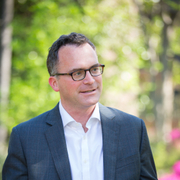- Level Professional
- Duration 12 hours
- Course by University of Pennsylvania
-
Offered by

About
For the last four centuries, scientists have aimed to provide us with an understanding of the world around us. By all appearances, science has made substantial progress during this time. But is this progress real or illusory? And if it is real, how has this progress been made? This four-week course will consider these important questions. Specific topics will include how scientists generate knowledge through observations, experiments, and simulations; scientific objectivity and failures of scientific objectivity; the self-correcting nature of the scientific community; the positive and negative influences that values can have on science; the relationship between science and religion; and the role of the public in guiding the scientific enterprise.Modules
Welcome to the Course and Week 1
2
Readings
- Introduction to the Course and your Instructor
- Week 1 Readings
Lessons for Week 1
6
Videos
- 1.1 Science: Past and Present
- 1.2 – Example 1: Evolutionary Theory
- 1.3a – Example 2: Aging the Universe
- 1.3b – Example 3: Climate Change
- 1.3c – Example 4: A Theory of Mind
- 1.4 – Diverse Subjects, Common Methods
Discussion and Quiz for Week 1
1
Assignment
- Week 1 Quiz
1
Discussions
- Week 1
Week 2
1
Readings
- Week 2 Readings
Lessons for Week 2
11
Videos
- 2.1 – Intro to Scientific Empiricism
- 2.2 – A Grounding in Observation
- 2.3a – Straight Observation
- 2.3b – Observation with Telescopes
- 2.3c – Practicing to Observe
- 2.3d – Making Observation More Efficient
- 2.3e – Mill’s Methods
- 2.4a – Isolating and Creating Phenomena
- 2.4b – The Logic of Experiments
- 2.5 – Simulations: Empirical and Reliable?
- 2.6 – Reliable Detection
Discussion and Quiz for Week 2
1
Assignment
- Week 2 Quiz
1
Discussions
- Week 2
Week 3
1
Readings
- Week 3 Reading
Lessons for Week 3
6
Videos
- 3.0 – The Power of Collective Knowledge
- 3.1 – Defining Scientific Objectivity
- 3.2 – Mechanisms of Scientific Objectivity
- 3.3 – Shedding Bias and Approaching Truth
- 3.4 – Failures of Objectivity
- 3.5 – Science, Pseudoscience and Uncertainty
Discussion and Quiz for Week 3
1
Assignment
- Week 3 Quiz
1
Discussions
- Week 3
Week 4
1
Readings
- Week 4 Reading
Lessons for Week 4
4
Videos
- 4.1 – Science in the Political Arena
- 4.2 – Should Science Be Value-Free?
- 4.3 – Scientific Freedom and Responsibility
- 4.4 – Cultivating Scientific Skepticism
Discussion and Quiz for Week 4
1
Assignment
- Week 4 Quiz
1
Peer Review
- Analysis of Science Reporting
1
Discussions
- Week 4
Auto Summary
Discover the "Philosophy of Science" course, designed for health and fitness professionals. Over four weeks, explore how scientists generate knowledge, the nature of scientific progress, and the interplay between science, values, and religion. Taught by Coursera, this professional-level course offers insights into scientific objectivity and the role of the public in science. Choose from Starter or Professional subscription options to deepen your understanding of the scientific community's self-correcting nature. Ideal for those eager to grasp the philosophical underpinnings of scientific advancements.

Michael Weisberg


